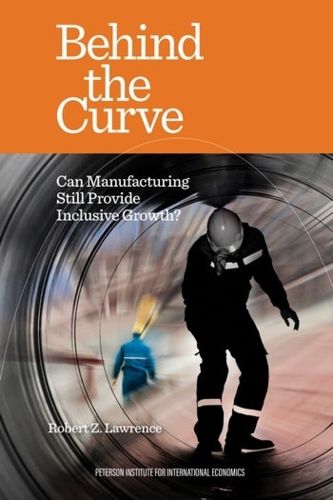Readings Newsletter
Become a Readings Member to make your shopping experience even easier.
Sign in or sign up for free!
You’re not far away from qualifying for FREE standard shipping within Australia
You’ve qualified for FREE standard shipping within Australia
The cart is loading…






Manufacturing jobs, once the backbone of the modern US economy, have declined over recent decades, darkening opportunities for middle-class advancement. The same trend has occurred in many countries, from Europe to Japan, China, and South Korea. To return manufacturing employment to its former glory, many countries have adopted import barriers and industrial policies. For the most part, those approaches have been misguided. In this book, Robert Z. Lawrence demonstrates that deeply rooted structural forces have produced the decline in manufacturing jobs, and these forces are not likely to be reversed. He analyzes the effects of trade, technological change, production efficiencies, and consumer spending patterns on manufacturing employment, showing that efforts by the United States and other countries will not return manufacturing jobs to past levels. Lawrence traces the historic role played by manufacturing in US growth and income distribution, but he argues that current trends-increased self-sufficiency, green growth, and advanced digital technologies-may make future growth less inclusive. New policies are needed to encourage more equitable sharing of the fruits of technological advancement among people, places, and countries.
$9.00 standard shipping within Australia
FREE standard shipping within Australia for orders over $100.00
Express & International shipping calculated at checkout
Manufacturing jobs, once the backbone of the modern US economy, have declined over recent decades, darkening opportunities for middle-class advancement. The same trend has occurred in many countries, from Europe to Japan, China, and South Korea. To return manufacturing employment to its former glory, many countries have adopted import barriers and industrial policies. For the most part, those approaches have been misguided. In this book, Robert Z. Lawrence demonstrates that deeply rooted structural forces have produced the decline in manufacturing jobs, and these forces are not likely to be reversed. He analyzes the effects of trade, technological change, production efficiencies, and consumer spending patterns on manufacturing employment, showing that efforts by the United States and other countries will not return manufacturing jobs to past levels. Lawrence traces the historic role played by manufacturing in US growth and income distribution, but he argues that current trends-increased self-sufficiency, green growth, and advanced digital technologies-may make future growth less inclusive. New policies are needed to encourage more equitable sharing of the fruits of technological advancement among people, places, and countries.